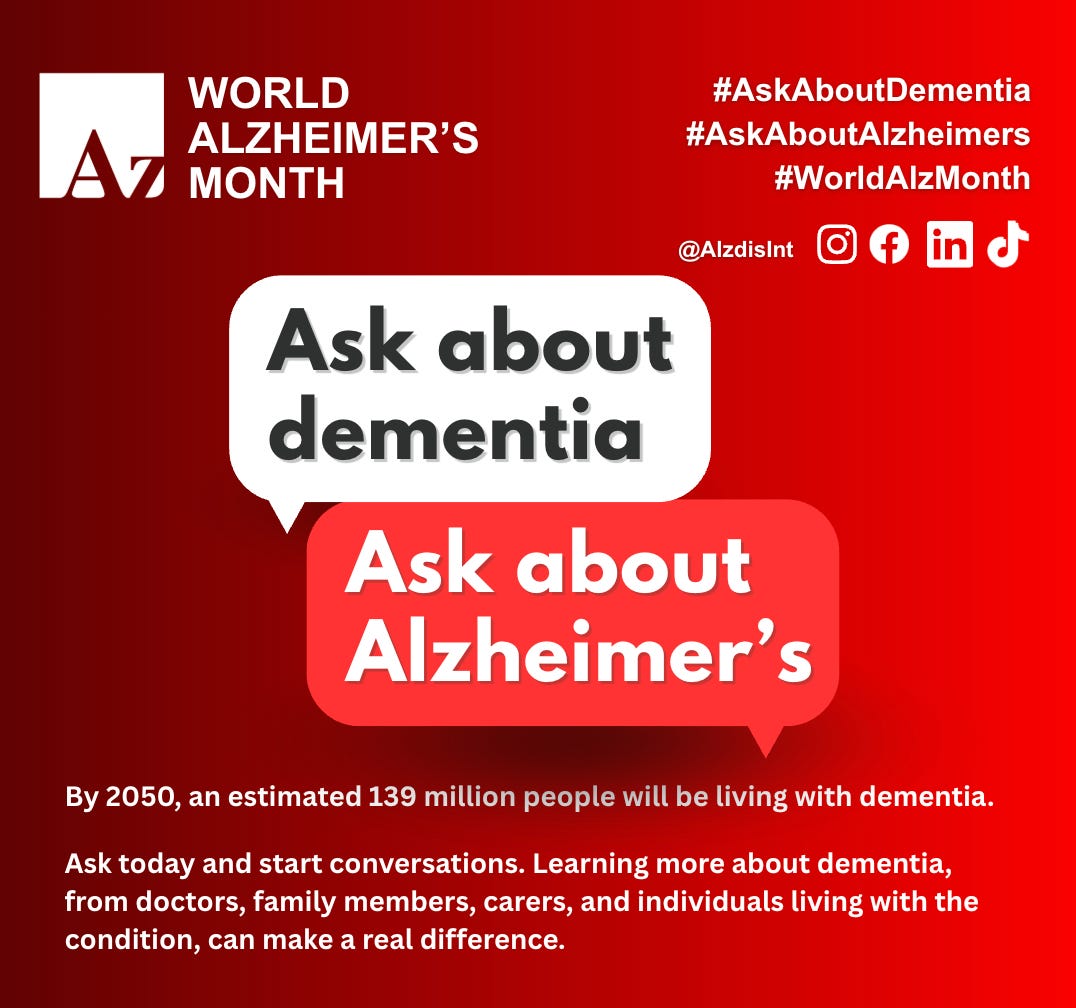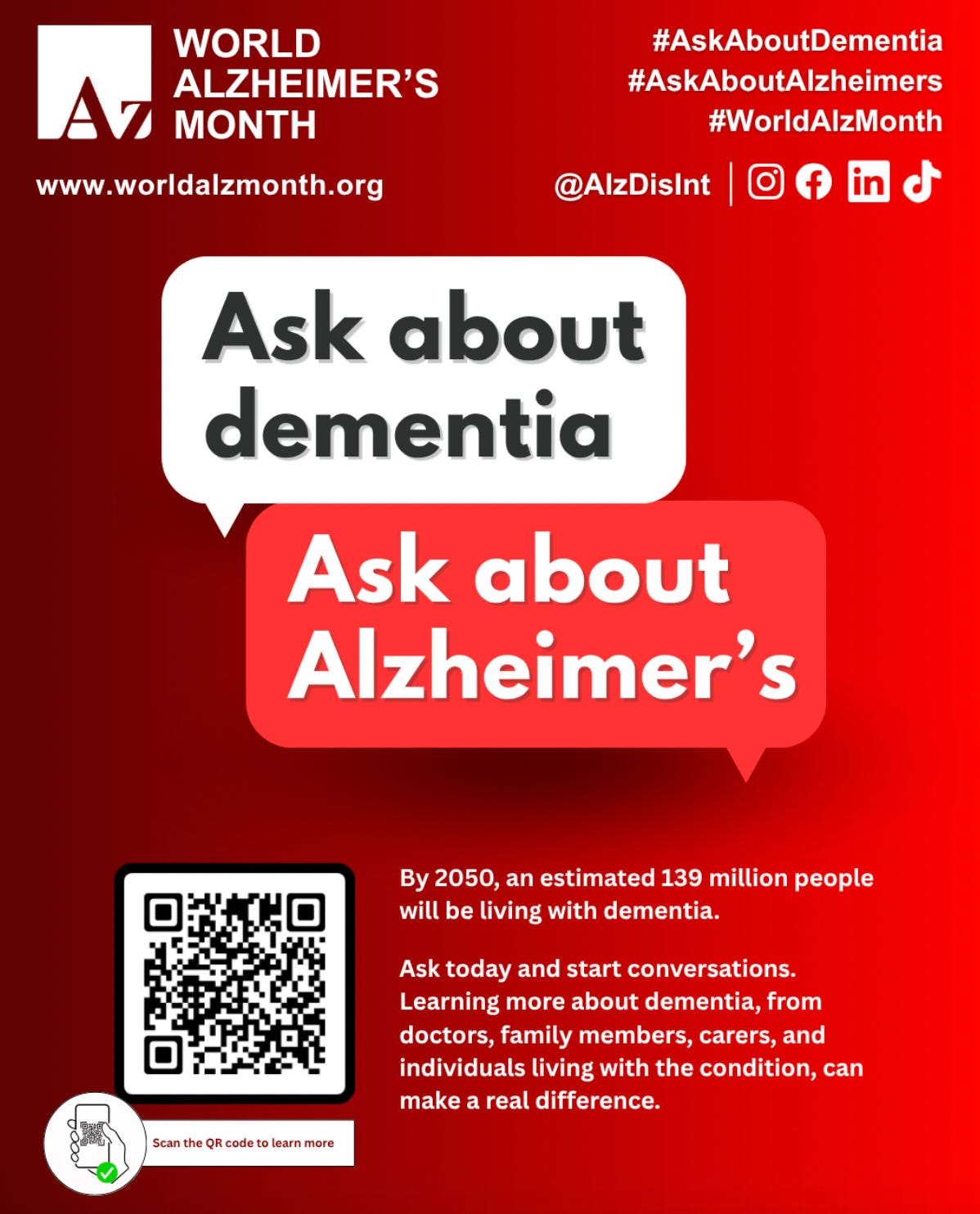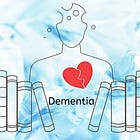#AskAboutDementia #AskAboutAlzheimers #WorldAlzMonth
Carer Mentor joins Alzheimer’s Disease International in raising awareness of dementia, challenging the surrounding stigma, and supporting all those affected by it. (Diagnosed, undiagnosed sufferers of dementia and all those supporting and caring for them)
You can join the campaign by using the resources here.
The following information has been taken from the Alzheimer's Disease International (ADI) website.
ADI is the international federation of over 100 dementia and Alzheimer associations from around the world and is in official relations with the World Health Organization (WHO). ADI’s vision is prevention, care and inclusion today, and cure tomorrow.
“September is World Alzheimer’s Month, an international campaign to raise dementia awareness and challenge stigma. Each year, Alzheimer and dementia associations, alongside all those involved in the treatment, care and support of people living with dementia, from around the world unite to organise advocacy and information provision events, as well as Memory Walks and fundraising days. ” By ADI
Globally, understanding and knowledge about dementia remains low, a finding amplified in ADI’s previous World Alzheimer Reports.
Strikingly, 80% of the public and 65% of health care professionals still wrongly believe dementia is a normal part of ageing.
Often, this is underpinned by a reticence to ask questions and seek out information, advice, and support.
Let’s tackle this reservation, reluctance and fear and encourage people to ask about Alzheimer’s, to ask about dementia. #AskAboutDementia #AskAboutAlzheimers.
Let’s change perceptions and normalise asking questions and learning more about this condition that impacts over 55 million people globally and their carers.
Key facts to share about Dementia:
Dementia is not a normal part of ageing.
Evidence suggests that when people with dementia and their families are well prepared and supported, feelings of shock, anger and grief are balanced by a sense of reassurance and empowerment.
In many parts of the world, access to receiving a diagnosis, as well as support following a diagnosis, is either insufficient, difficult to access, or not available at all.
National Dementia Plans are the best tool governments have available to tackle dementia.
Alongside drug treatments and medical supports, social support, inclusive dementia friendly design, social activities, reminiscence sessions, rehabilitation and respite, are all vital to maximise the independence of people living with dementia and their carers.
Did You Know
The Institute of Health Metrics and Evaluation have published estimated prevalence figures for most countries now and in 2050.
Click here to see the predictions for your country
Statistics that hit home
There are over 55 million people around the world living with dementia.
Someone develops dementia every 3 seconds.
The number of people living with dementia is predicted to rise sharply to 78 million by 2030 and 139 million by 2050.
Dementia will be the 3rd leading cause of death globally by 2040.
The economic burden of dementia is US $1.3 trillion dollars every year, a figure that will more than double by 2030.
88% of people living with dementia indicate experiencing discrimination.
More than 90% of carers and respondents from the general public said they would be encouraged to get a diagnosis if a disease-modifying treatment were available for dementia.
More than 80% of the general public believe that they can change the support provided to people with dementia through their vote.
Over 50% of carers globally report that their health has suffered as a result of their caring responsibilities, despite expressing positive sentiments about their role.
50% of the costs for dementia are related to informal care. Globally, the annual number of unpaid informal care hours provided to people with dementia living at home is the equivalent of 67 million full-time workers.
Women are most likely to provide care to people with dementia, both professionally and informally, with around two-thirds of primary caregivers overall being women.
This figure is significantly higher in low- and middle-income countries (LMICs), areas which will account for 71% of the global prevalence of dementia by 2050.
Two-thirds of people living with dementia are women. In LMICs, 90% of the care for those living with dementia occurs in the home.
World Alzheimer’s Day
World Alzheimer’s Day is on 21 September each year.
Each World Alzheimer’s Day, ADI releases its annual World Alzheimer's Report. This year’s report will focus on rehabilitation.
The Carer Mentor Dementia Anthology shares the experiences of individuals diagnosed with cognitive impairment/Dementia and their caregivers.
You can learn about lived experiences right here:

Dementia Caregivers: 'How to connect and communicate more effectively.' Connection over correction.
Please ‘❤️’ LIKE the article to guide others here.







Some fascinating and in some cases sobering statistics here. So good to see them shared! The more widely we can talk about these things the better, I feel!
I am a single female with Alzheimer’s - 78 years old. I have no family. I live alone in my own home. Are there any services or help available for someone completely alone like me?